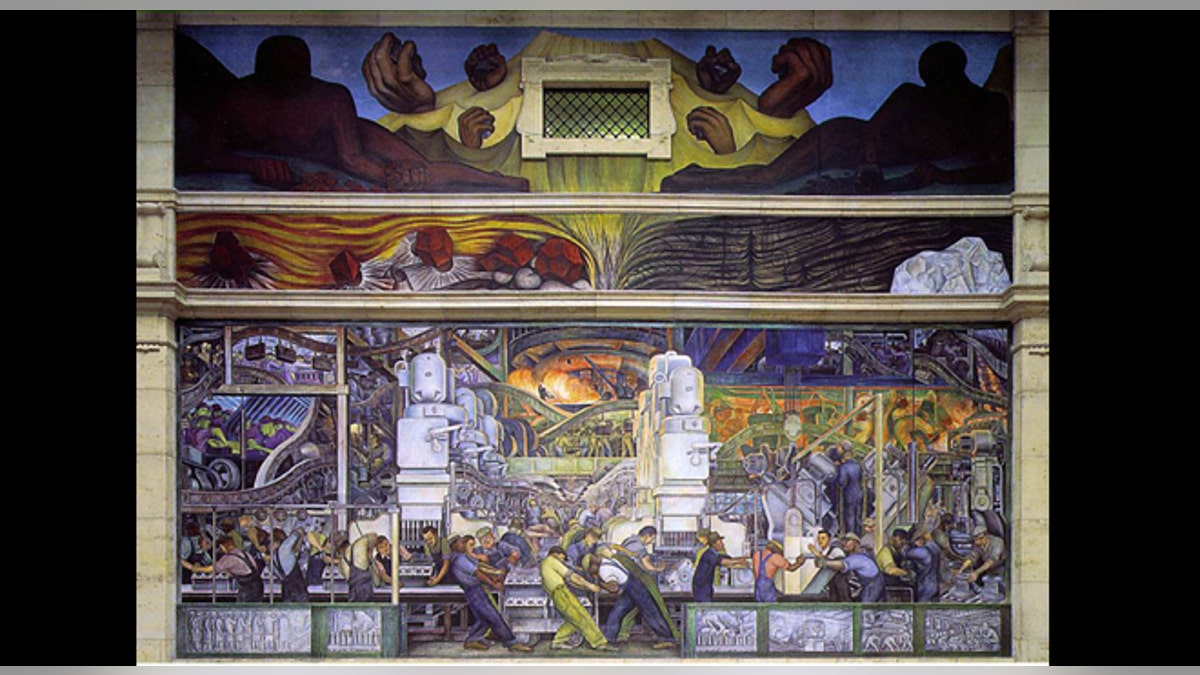
Diego Rivera's "Detroit Industry" mural located in the Detroit Institute of the Arts. (AP)
Famed Mexican artist Diego Rivera's prominent murals in Detroit will not be sold to help the city pay its $18 billion debt.
Rivera's "Detroit Industry" fresco is the centerpiece at the Detroit Institute of Arts and was donated to the city as a tribute to its auto manufacturing base.
Fears of the city auctioning off its prized art hit a fever pitch after U.S. Bankruptcy Judge Steven Rhodes authorized the city's bankruptcy filing Tuesday, officially making Detroit the largest city in U.S. history to enter into default.
Over the last few days, works from DIA were appraised by New York-based Christie's inc. for possible liquidation. As reported by Bloomberg, the company only assessed works that were paid for for by the city which amounts to a total of $452 million and $866 million.
Detroit's Emergency Manager Kevyn Orr said he doesn't want to sell the city's art, but rather leverage its value. Orr laid out a restructuring plan to the Detroit Free Press on Tuesday, noting the need to cut pensions, monetize art and update the city's technology to include paying taxes online and automated systems.
According to Bloomberg, Christie's suggested that the city's art can be used as collateral for loans and could be sold to philanthropists with the condition that the art remains in Detroit.
Rivera, who died at 70, completed twenty-seven panel frescoes in eleven months and are revered as the finest example of Mexican mural art in the United States. The tallest fresco stands at 17 feet high. Married to Frida Kahlo, the famed Mexican painter best known for her self portraits, Rivera was a leftist who believed art should be on public walls and not in private galleries.
The DIA said the museum remains an essential part of the revitalization of Midtown Detroit and the museum's art should remain for the public.
"The DIA continues to maintain its position that the museum collection is a cultural resource, not a municipal asset," the museum said in a statement.
"The DIA remains hopeful that the Emergency Manager will, consistent with the City's fiduciary duty as a public trustee, continue to protect the Museum and the collection and oppose any attempts to force a sale, despite the position that some creditors have taken in a recent bankruptcy court filing," the statement continued. "However, if the collection is jeopardized, the DIA remains committed to taking appropriate action to preserve this cultural birthright for future generations."




















